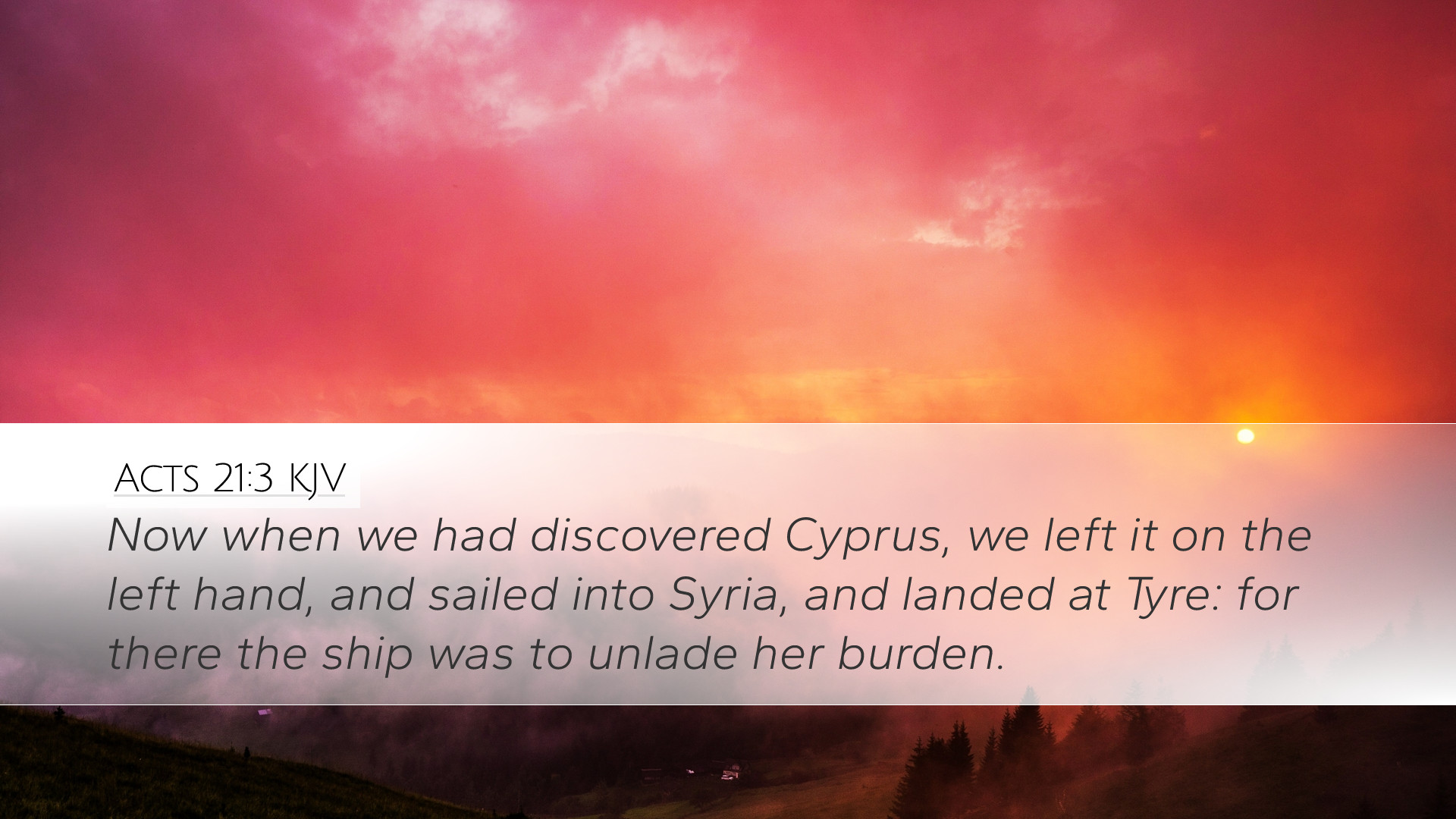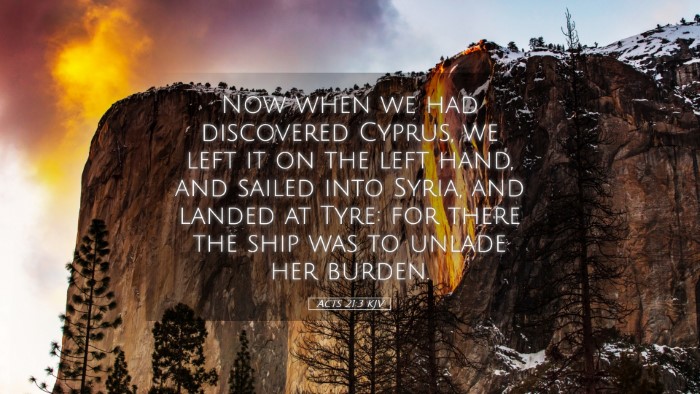Bible Commentary on Acts 21:3
Verse: Acts 21:3 - "Now when we had discovered Cyprus, we left it on the left hand, and sailed into Syria, and landed at Tyre: for there the ship was to unlade her burden."
Introduction
This passage in Acts captures a significant moment in the journey of the Apostle Paul as he proceeds with his mission despite the foreboding warnings he receives. The commentaries by Matthew Henry, Albert Barnes, and Adam Clarke provide great insight into this verse, emphasizing the geographical, historical, and theological significance of the events surrounding Paul's journey.
Geographical Context
Matthew Henry emphasizes the importance of the geographical details in Scripture. The mention of Cyprus is significant as it indicates a navigational landmark. Cyprus, known for its strategic location in the Mediterranean Sea, serves as an important reference point for understanding the Apostle's travels. Leaving Cyprus to sail into Syria suggests a deliberate choice, highlighting his focus on reaching the mainland and eventually Jerusalem.
Albert Barnes adds to this by noting that the route taken would have allowed Paul and his companions to engage with various communities along the way. The ship's course reflects a common shipping route of that era, thus providing historical context to Paul's missionary work.
Theological Significance
Adam Clarke points out that this journey underscores a deeper theological theme - the commitment to the Great Commission. Paul’s determination to reach Tyre, despite warnings of danger, illustrates his unwavering dedication to preach the gospel. The destination, Tyre, a city with significant Gentile populations, symbolizes the extension of the Christian message beyond Jewish boundaries.
This willingness to venture into potentially hostile territory resonates with the early Christians' mission to spread the Gospel to all nations, reaffirming the Church's mission imperative. Paul embodies the essence of risk and obedience in ministry.
Pondering the Emotional Landscape
Matthew Henry further reflects on the emotional and spiritual turmoil that Paul experiences throughout his journey. Despite the hardships faced and the warnings received - especially from the prophetic community - Paul is steadfast in his purpose. This illustrates profound faith and an understanding that obedience to God sometimes requires confrontations with fear.
This aspect of Paul's character serves as an encouragement to pastors and theologians today, demonstrating that doubt and anxiety can coexist with strong faith and conviction.
Application for Today's Believers
From this verse, Albert Barnes draws practical applications for contemporary believers. The journey of Paul reminds Christians of the importance of faithful navigation through life's uncertainties. Just as Paul relied on God's guidance, believers today are called to seek divine direction in their own personal and spiritual voyages.
- Journeying with Purpose: Every step and decision in life should be guided by a sense of purpose and direction from God.
- Embracing Challenges: Like Paul, believers should embrace the challenges that come with living out their faith authentically.
- Prioritizing Community: The presence of Paul’s companions serves as a reminder that ministry is often a communal effort, and the church is called to support one another.
Conclusion
Acts 21:3 serves as a reminder of the complex interplay between geography, theology, and personal faith journeys. The insights from legendary commentators like Matthew Henry, Albert Barnes, and Adam Clarke reveal rich layers of meaning within a simple travel account. Their collective wisdom encourages modern-day believers to navigate their spiritual pathways with the same zeal and conviction as the Apostle Paul.


